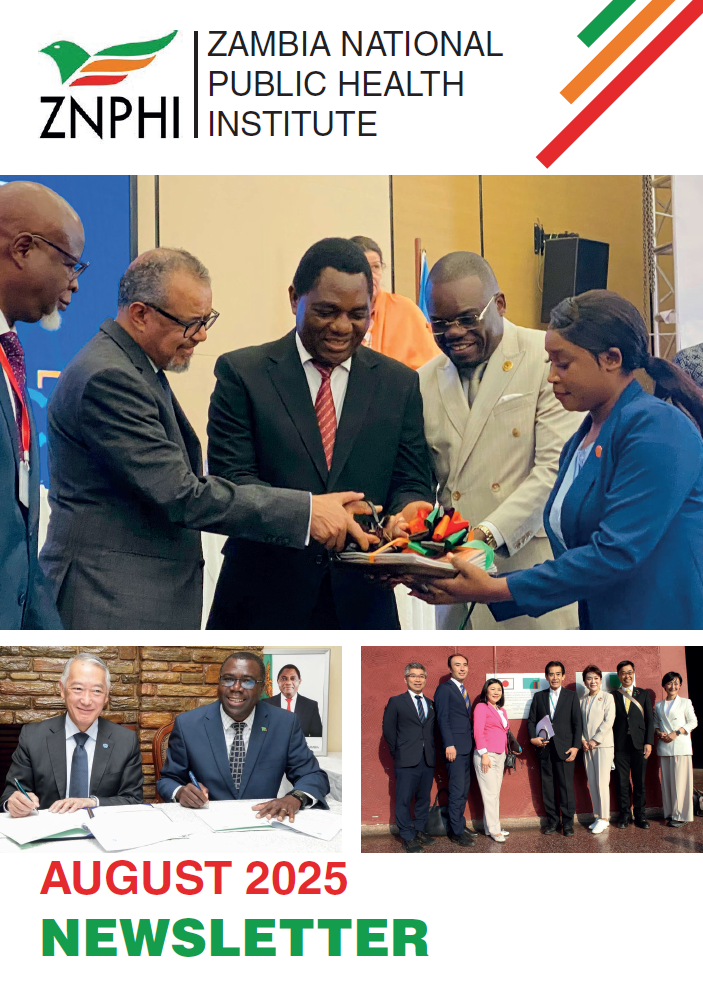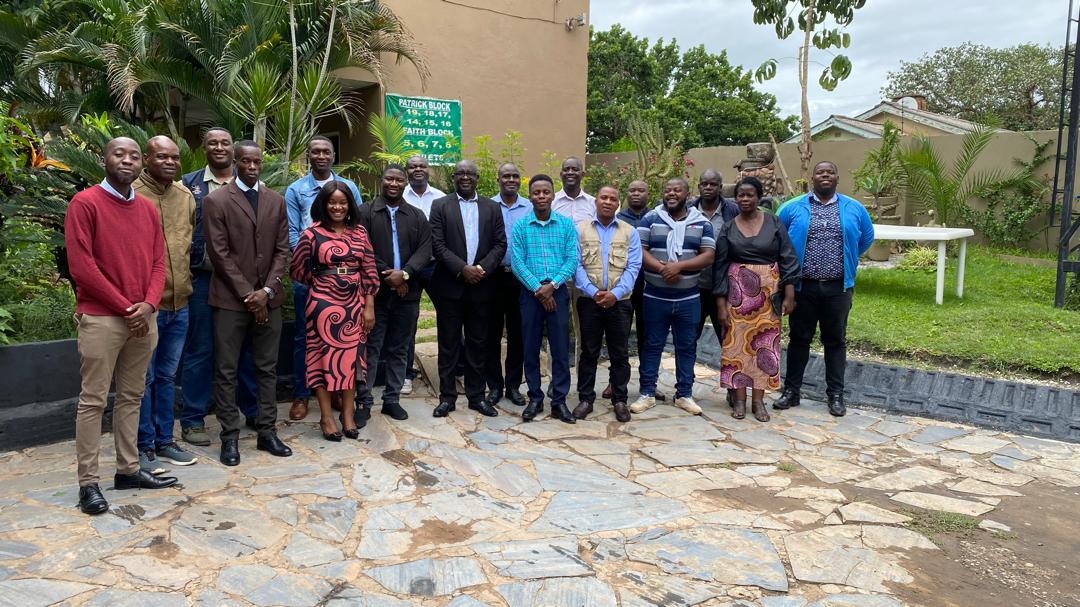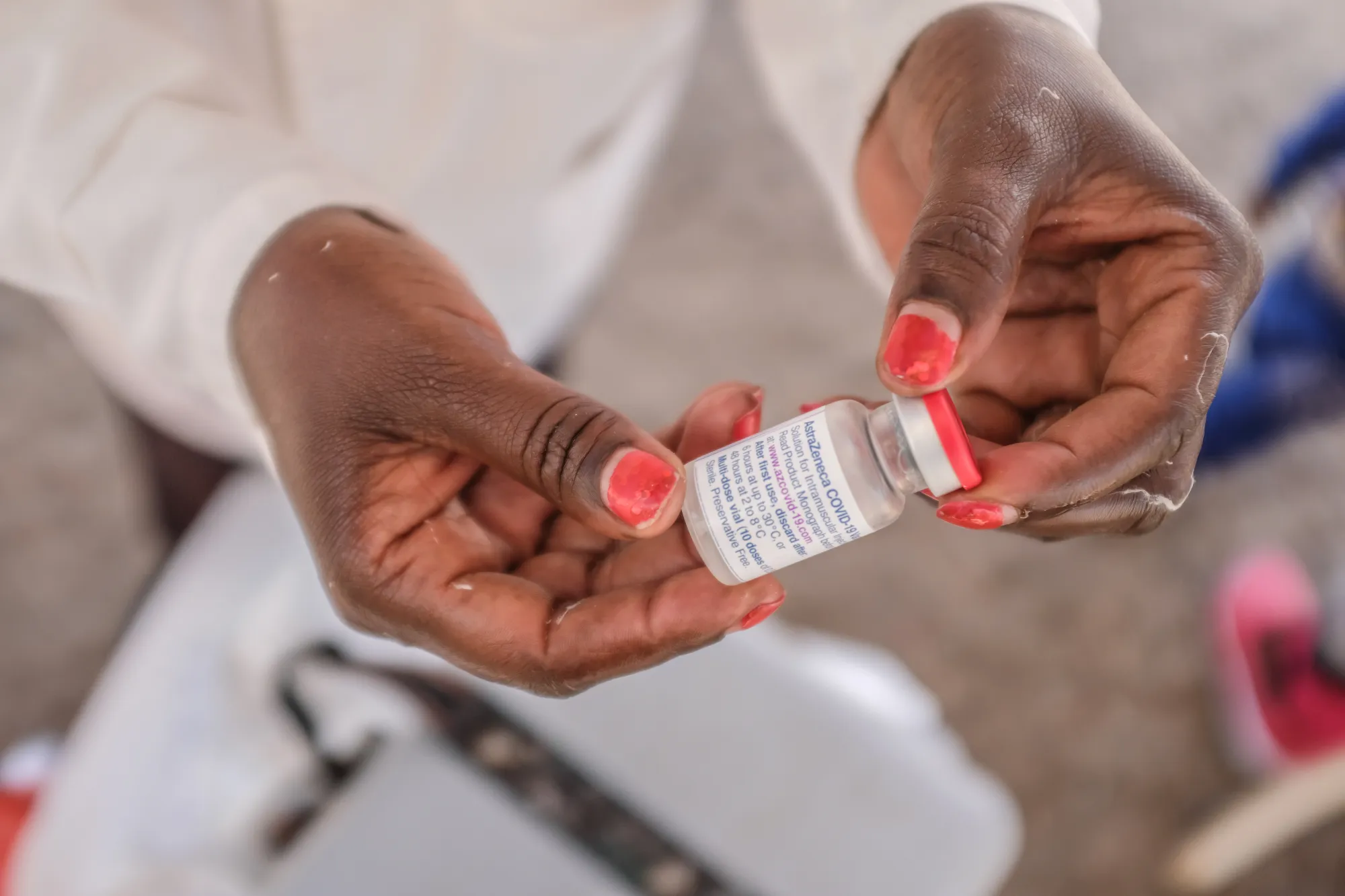On Tuesday 14th February, 2023 the Zambia National Public Health Institute (ZNPHI) launched the National One Health Strategic Plan for 2022-2026 and the one-year implementation plan at The Urban Hotel in Lusaka. The launch was preceded by a stakeholder meeting at Protea Hotel, Lusaka to develop One Health Technical Working Groups (TWGs) according to the 2022 – 2026 strategic plan.
The launch was graced by high officials who included the ZNPHI Acting Director General (DG), the UK High Commissioner to Zambia, the Permanent Secretary (PS) from the Ministry of Health (MoH), Food and Agricultural Organisation country (FAO) representative, World Health Organisation (WHO) country representative, USAID Head of mission, PS Ministry of Fisheries and Livestock and PS Ministry of Green Economy and Environment.
Speaking at the inauguration, Ms. Mazyanga Liwewe, the ZNPHI acting DG, emphasized the importance of a One Health strategy, which integrates human health with animal health and environmental safety. Ms. Liwewe asserted that in order to implement the One Health strategic plan and safeguard the health of the Zambian people, ZNPHI, the MoH, and stakeholders worked collaboratively under government policy.
The national coordinator for One Health, Dr Raymond Hamoonga, emphasized that creating the platform for the coordination of One Health within the plan is was huge step toward the greatest level of investments at the level of the permanent secretary and civil structure. Dr Hamoonga further stated that ZNPHI will thrive in seeking out better ways to integrate Zambia’s multi-sectoral coordination.
Speaking at the same event, the Permanent Secretary (PS) of the Ministry of Health (MoH), Prof. Lackson Kasonka, stated that with the One Health approach, the nation can advance on two crucial fronts: better prevention, prediction, detection, and response to threats to global health; and also promotion of sustainable global health security. The PS recognised Zambia’s significant contributions to ensuring global health security, not just for the benefit of its own citizens but also for those of other nations. He further added that since Zambia now has a One Health strategic plan in place, the country will concentrate on operationalizing the One Health platform to strengthen the One Health strategy and achieve public health security.
Prof. Lackson Kasonka highlighted three issues of concern that the One Health approach can solve. One, being that 73 percent of the majority of developing pathogens have wild animal hosts as their original environment. Two, he pointed out that Zambia’s status as a landlocked nation puts it at a high risk of becoming a hub for regional infectious disease concerns that arise from international travel. Thirdly, Prof. Kasonka added that due to the increasing susceptibility of microorganisms to antibiotics and the rise in antibiotic abuse in the human, animal, food, and agricultural sectors, microbes now offer a serious long-term threat to health, sustainable food production, and development.
As a solution, Prof. Lackson Kasonka asserted that the One Health approach will be a vital pillar in solving these issues and fulfilling the commitments of the global health security agenda once it is fully operational. He added that the One Health approach also provides for proper land use for agriculture and extractive industries, increased human-animal interactions, global warming and climate change, and increased global travel and trade.
Meanwhile, the FAO representative Mr Geoffrey Chomba said that the operationalization of the One Health Technical Working Groups (TWGs) and the launch of the strategic plan marks a new era of matters of One Health in Zambia. In order to increase the capacities of the government to effectively contribute to the management of public health events and dangers, Mr. Chomba said FAO is happy to offer support, particularly in the animal sector. He concluded that FAO wants to reassure the Zambian government of its commitment to and ongoing support for initiatives that promote One Health security globally.
According to the WHO representative in Zambia Dr. Nathan Bakyaita, the origins and consequences of the Covid 19 pandemic have also highlighted the significance of the One Health, one world approach to health care. Dr. Bakyaita said that food safety and security can have extra effects on human health as a result of animal disease. He added that the environment is equally crucial in preventing certain ailments. Dr. Nathan Bakyaita notably expressed WHO’s appreciation to the ZNPHI and MoH leadership for working collaboratively with other government ministries, departments, and agencies to develop the five-year national One-Health strategic plan and its one-year implementation plan.
And Mr. Peter A. Wiebler, Head of Mission for USAID, pointed to the importance of enhancing public health resilience globally. The Head of Mission remarked that among the 22 nations where USAID works, Zambia is one of the main focus countries and will receive additional resources and attention to support the systems that can prevent future pandemics.
Conclusively, HE. Nicholas Woolley, the UK High Commissioner to Zambia, remarked that the strategic plan’s launch is an essential milestone that fully represents the significance of interactions amongst human, animal, and environmental health in order to improve public health in Zambia. HE. Woolley said the UK Health Security Agency (UKHSA) continues to spearhead works in nutrition, education and other projects supporting Zambia. The High Commissioner further commended the efforts of the government in tackling associated health risks amidst the floods which he witnessed himself on Friday where the team included President HH, MoH Health, ZNPHI DG, and others.








